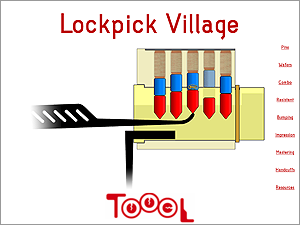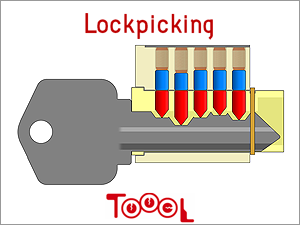Official TOOOL Slides
Anytime TOOOL gives a presentation about lock picking, we use one of the following PowerPoint slide decks:
These slides are our full “Lockpick Village” presentation which conveys an overview of many styles of locks and techniques. They are used at larger security conventions and professional events.
Resources for Learning More
There are a number of terrific web sites and online forums where you can learn a great deal about physical security, sport picking, and non-destructive entry techniques. In addition to the web sites of other affiliated groups in this field like TOOOL.nl, Sportsfreunde der Sperrtechnik, the Fraternal Order of Locksport, and The Locksport Network Directory, there are a number of useful publications like Marc Tobias’ Locks, Safes, and Security as well as Douglas Chick’s Steel Bolt Hacking.
Online publications like Non-Destructive Entry Magazine and the blogs of Bary Wels and Matt Blaze contain terrific content. Other great wikis and guides can be found by Googling. Speaking of Google, there are also loads of short clips as well as long segments to be found on YouTube.
All of the diagrams and animations seen in our slide decks and other educational materials are freely available to the public. Deviant Ollam has released them under Creative Commons licensing. These images and their associated framework files are all available here. Lecture notes, animated diagrams, short clips, and even whole recordings of talks from TOOOL events can also be found on Deviant’s web site.
Last on this list, but least in no way, is the active TOOOL US community. Both our in-person meetings and our online Discord community are valuable educational resources. You can join us at discord.gg/TOOOL to engage with our community and learn more interactively about lock picking, locksport, and related concepts.


